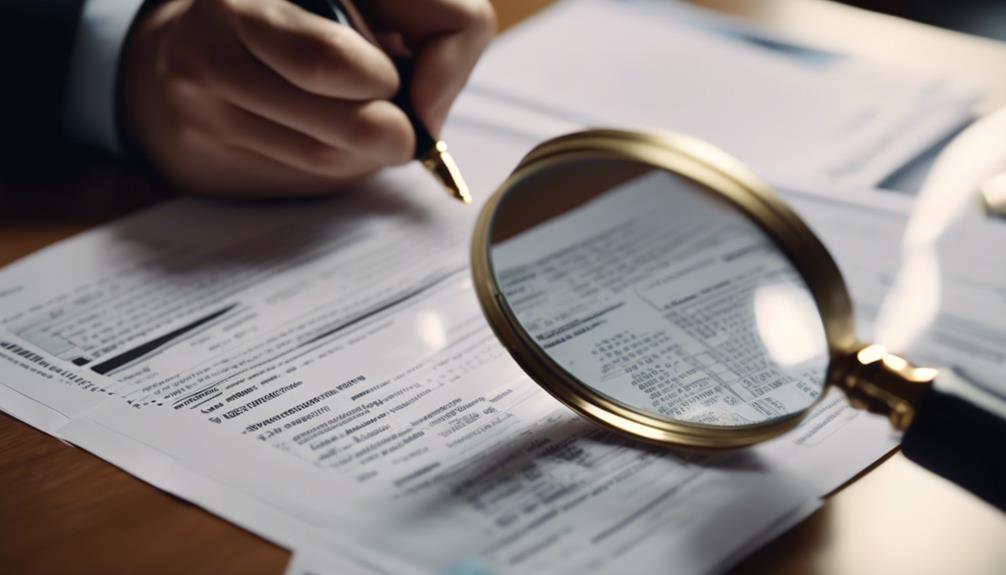Navigating charity fraud is akin to journeying through a complex and ever-changing landscape. The goal is noble giving, but potential pitfalls and deceptive detours abound. Well-intentioned donors must remain vigilant and make informed decisions to safeguard their generosity. Understanding charity fraud intricacies and navigating its treacherous terrain are crucial for impactful philanthropy.
Identifying Charity Fraud

To spot charity fraud, research the organization thoroughly before donating. Check legitimate charity lists and state permission. Use online resources to search for complaints, reviews, or scams. Be cautious of warning signs like immediate pressure. Report concerns to Consumer Protection agencies to prevent fraud. Stay informed and attentive to protect against deceptive practices.
Recognizing Warning Signs
Recognize warning signs of charity fraud by being cautious of high-pressure tactics and pushy callers. Genuine charities respect do-not-call requests and allow time for decision-making. Be wary of unsolicited donation requests and hang up on suspicious calls. Use resources like Charity Navigator to verify a charity's legitimacy before donating. By recognizing these signs and taking preventative measures, individuals can protect themselves from charity fraud. Feeling a sense of belonging and trust when contributing to charitable causes is important. Understanding the warning signs allows people to make informed decisions and support causes aligned with their values.
Reporting Scam Incidents

Upon spotting warning signs of charity fraud, individuals must report suspected scams to the Federal Trade Commission (FTC) and state charity regulators promptly. This action safeguards others from falling victim to the same fraudulent activities. When reporting charity scams, it is vital to provide specific details, such as the organization or fundraiser's name, contact information, and a description of the suspected fraudulent activity. Immediate action and reporting these incidents can prevent others from being deceived by similar charity scams.
In addition to reporting to the FTC and state charity regulators, individuals can contribute to safeguarding others by sharing information with fraud watch networks. Reporting fraudulent charity donation requests to relevant authorities is also essential. Raising awareness about charity scams is crucial in protecting others from becoming victims of similar fraudulent activities. Seeking assistance from trusted sources like the Better Business Bureau or Wise Giving when encountering uncertainties about a charity's use of donations is recommended. By being proactive and vigilant, individuals can play a crucial role in preventing charity fraud and ensuring that their donations are being used for their intended purposes.
Preventing Donation Scams
To avoid falling victim to donation scams, individuals must thoroughly research charities before making contributions. Firstly, check the charity's credentials on official websites like the IRS or Charity Navigator. Legitimate organizations are transparent and registered with authorities. Secondly, refrain from giving personal information over the phone to avoid potential scams. Instead, request written materials through mail. Finally, verify the legitimacy of unfamiliar charities by researching their mission, financial reports, and donor reviews.
Seeking Assistance for Fraud

When facing charity fraud, individuals should seek help from trusted organizations or authorities. If suspicion arises, report to reputable charitable organizations or government agencies. Provide any unintended donation details, like credit card information, to prevent misuse. Verify donation requests through reliable resources to avoid falling victim to scams. By following these tips, individuals can protect themselves and contribute to legitimate charitable causes.
Frequently Asked Questions
How Do I Report Fundraiser Fraud?
When encountering fundraiser fraud, gather information and report it to the FTC and state charity regulator. Donors should also verify fundraisers and report suspicious activity to law enforcement and watchdog networks. This will raise public awareness and hold scammers accountable.
How Can You Protect Yourself From Donating to Fake Campaigns?
In order to safeguard against donating to fraudulent campaigns, individuals must recognize warning signs and conduct thorough research. By exercising caution and verifying legitimacy, they can ensure the safety of their donations and avoid falling victim to scams.
How Can You Make Sure You a Charity Is Using Your Money Wisely?
In order to ensure donation accountability, it is important to prioritize charities with financial transparency and impact evaluation. Additionally, efficient program allocation is crucial. Donor education on charity evaluation and nonprofit accountability is essential to ensure fund allocation for maximum impact.
How Can You Really Be Sure That a Charity Based Site Is Legit?
In order to confirm a charity-based site's legitimacy, people can use trust indicators and check online reviews. Additionally, they should seek contact information and review transparency policies to ensure credibility. Furthermore, looking for accreditation checks, social media presence, and financial accountability can provide further assurance.
Conclusion
In the realm of giving, not everyone has good intentions. Therefore, it's crucial for donors to stay vigilant and informed. By doing so, they can avoid falling victim to charity fraud. The key is to ensure donations go to legitimate organizations. Therefore, it's important to watch out for red flags, report any suspicious activity, and trust your instincts. Ultimately, in the world of charity, it's wiser to be safe than sorry.



